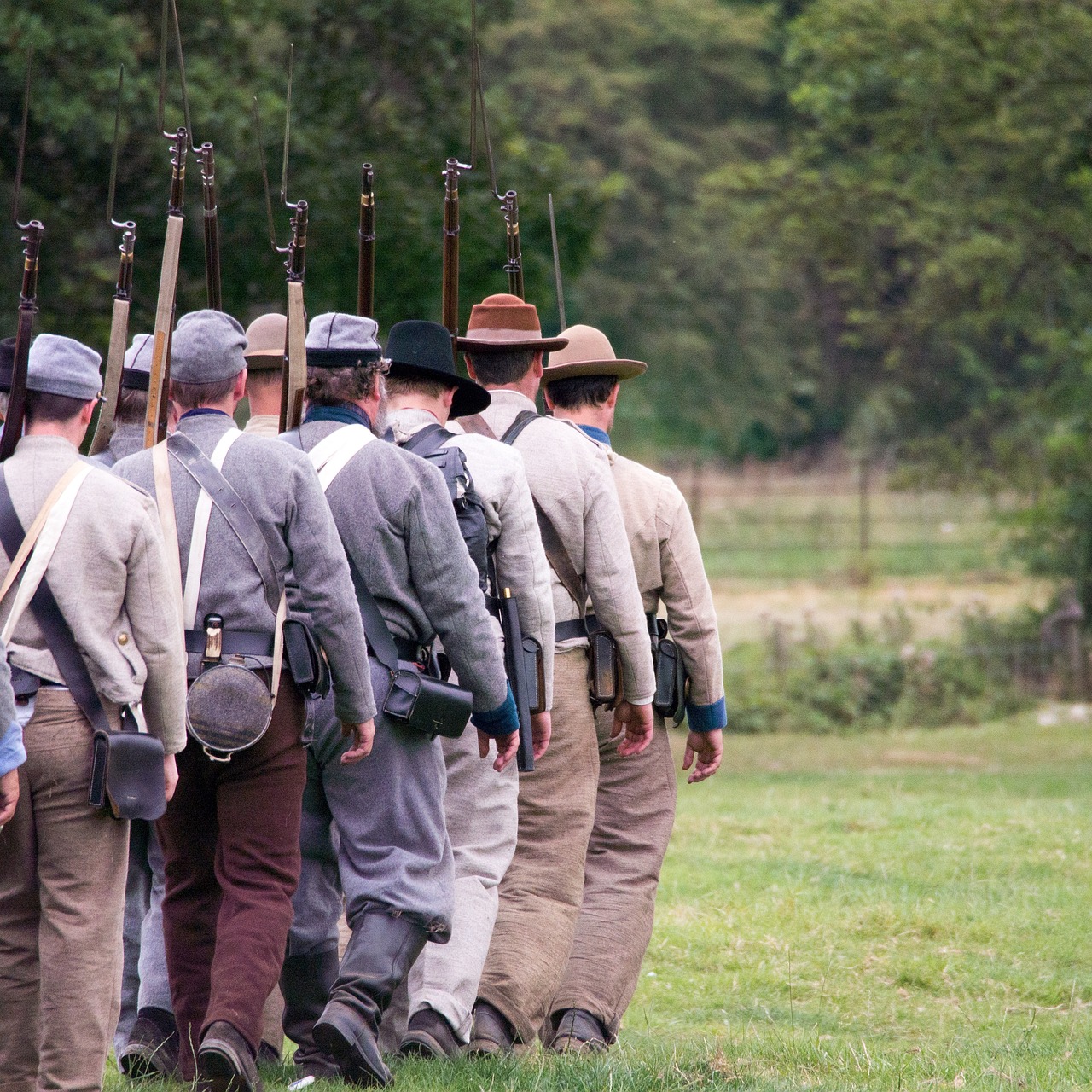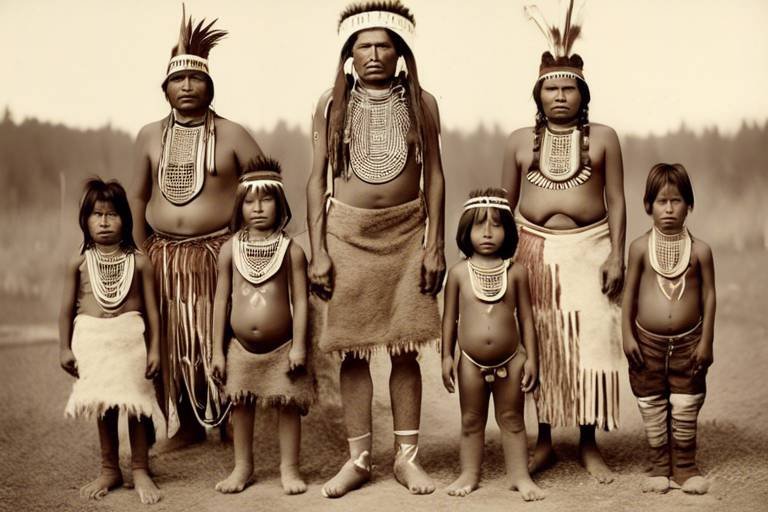The Civil Rights Movement - A Fight for Equality
The Civil Rights Movement in the United States was a monumental struggle for equality and justice that left an indelible mark on the nation's history. It was a time of upheaval, courage, and determination as individuals and communities fought against discrimination and segregation. This movement was not just a series of events; it was a powerful force that reshaped society and challenged the status quo.
At the heart of the Civil Rights Movement were individuals like Rosa Parks, whose refusal to give up her seat on a bus sparked the Montgomery Bus Boycott. This act of defiance set off a chain reaction of protests and demonstrations, leading to a significant shift in the fight against racial segregation. The boycott was a turning point, demonstrating the power of collective action and civil disobedience in the pursuit of equality.
One of the most iconic moments of the Civil Rights Movement was the March on Washington for Jobs and Freedom, where Martin Luther King Jr. delivered his legendary "I Have a Dream" speech. His words resonated across the nation, calling for an end to racial injustice and discrimination. The march was a powerful display of unity and solidarity, bringing together people from all walks of life in a shared demand for civil rights reforms.
The Selma to Montgomery March and the passage of the Voting Rights Act of 1965 were watershed moments in the struggle for voting rights and political empowerment. Led by civil rights activists, the march highlighted the ongoing fight against discriminatory voting practices and the need for legislative change. The Voting Rights Act was a significant step forward, aiming to ensure equal access to the ballot box for all citizens.
Malcolm X and the Black Power Movement brought a new dimension to the Civil Rights Movement, advocating for self-defense, self-reliance, and empowerment within the African American community. Their message of pride, strength, and resilience resonated with many who sought a more assertive approach to combating racial inequality.
Women played a crucial role in the Civil Rights Movement, often working behind the scenes to organize, mobilize, and lead. Figures like Ella Baker, Fannie Lou Hamer, and Dorothy Height made significant contributions to the fight for equality, challenging gender discrimination within the movement and advocating for a more inclusive and equitable society.
The impact of key civil rights legislation, such as the Civil Rights Act of 1964 and the Voting Rights Act of 1965, cannot be overstated. These laws were instrumental in dismantling segregation and institutionalized discrimination, paving the way for a more just and equal society. They marked a significant shift in the legal landscape, affirming the rights and protections of all citizens.
The legacy of the Civil Rights Movement endures to this day, shaping the course of contemporary social justice movements and inspiring ongoing efforts for equality and racial justice. Its influence can be seen in the continued push for civil rights reforms, the call for systemic change, and the demand for a more inclusive and equitable society for all.
As we reflect on the challenges and progress in the quest for equality, it is clear that there is still much work to be done. Issues of systemic racism, social injustice, and inequality persist, requiring ongoing vigilance and advocacy. The fight for civil rights and equality is a continuous journey, one that demands our attention, our commitment, and our collective action.

Rosa Parks and the Montgomery Bus Boycott
Rosa Parks, often referred to as the "Mother of the Civil Rights Movement," played a crucial role in igniting the Montgomery Bus Boycott in 1955. Her simple act of defiance, refusing to give up her seat to a white passenger on a segregated bus, sparked a wave of protests and activism that reverberated throughout the nation.
The Montgomery Bus Boycott, a coordinated effort by African American residents of Montgomery, Alabama, to challenge racial segregation on public transportation, lasted for 381 days. This nonviolent protest, organized by leaders such as Martin Luther King Jr., marked a turning point in the fight for civil rights and equality in America.
Rosa Parks' courageous stand symbolized the resistance against unjust laws and discrimination. Her arrest and the subsequent boycott captured the attention of the nation and galvanized support for the Civil Rights Movement. The boycott not only led to the desegregation of buses in Montgomery but also inspired similar acts of civil disobedience across the country.
Through her actions, Rosa Parks became a symbol of resistance and resilience, demonstrating the power of individual courage in the face of oppression. Her defiance paved the way for future generations of activists and leaders to continue the struggle for equality and justice.

March on Washington and Martin Luther King Jr.'s
Exploring the historical significance and impact of the Civil Rights Movement in the United States, highlighting key events, leaders, and the ongoing struggle for equality and justice.
Examining the pivotal role of Rosa Parks in sparking the Montgomery Bus Boycott, a significant event that marked the beginning of the modern Civil Rights Movement and challenged segregation laws.
Discussing the iconic March on Washington for Jobs and Freedom and Martin Luther King Jr.'s powerful speech, emphasizing the call for racial equality and civil rights reforms in America.
The March on Washington in 1963 was a monumental event that brought together over 250,000 people from all walks of life to advocate for civil and economic rights for African Americans. Martin Luther King Jr.'s "I Have a Dream" speech, delivered during the march, resonated deeply with the crowd and the nation as a whole. His impassioned words called for an end to racial injustice and segregation, envisioning a future where individuals are judged by their character rather than the color of their skin.
Analyzing the Selma to Montgomery March led by civil rights activists and the subsequent passage of the Voting Rights Act of 1965, which aimed to eliminate discriminatory voting practices.
Exploring the influence of Malcolm X and the emergence of the Black Power Movement, focusing on the advocacy for self-defense, self-reliance, and empowerment within the African American community.
Highlighting the contributions of women such as Ella Baker, Fannie Lou Hamer, and Dorothy Height to the Civil Rights Movement, addressing gender discrimination and the fight for equality within the movement.
Evaluating the impact of key civil rights legislation, including the Civil Rights Act of 1964 and the Voting Rights Act of 1965, on dismantling segregation and advancing equal rights for all citizens.
Reflecting on the enduring legacy of the Civil Rights Movement, discussing its influence on contemporary social justice movements and the ongoing pursuit of equality and racial justice in society.
Examining the current challenges and progress in the quest for equality, addressing issues of systemic racism, social justice movements, and the importance of continuing the fight for civil rights and equality.

I Have a Dream
Exploring the historical significance and impact of the Civil Rights Movement in the United States, highlighting key events, leaders, and the ongoing struggle for equality and justice.
Examining the pivotal role of Rosa Parks in sparking the Montgomery Bus Boycott, a significant event that marked the beginning of the modern Civil Rights Movement and challenged segregation laws.
Discussing the iconic March on Washington for Jobs and Freedom and Martin Luther King Jr.'s powerful speech, emphasizing the call for racial equality and civil rights reforms in America.
Analyzing the Selma to Montgomery March led by civil rights activists and the subsequent passage of the Voting Rights Act of 1965, which aimed to eliminate discriminatory voting practices.
Exploring the influence of Malcolm X and the emergence of the Black Power Movement, focusing on the advocacy for self-defense, self-reliance, and empowerment within the African American community.
Highlighting the contributions of women such as Ella Baker, Fannie Lou Hamer, and Dorothy Height to the Civil Rights Movement, addressing gender discrimination and the fight for equality within the movement.
Evaluating the impact of key civil rights legislation, including the Civil Rights Act of 1964 and the Voting Rights Act of 1965, on dismantling segregation and advancing equal rights for all citizens.
Reflecting on the enduring legacy of the Civil Rights Movement, discussing its influence on contemporary social justice movements and the ongoing pursuit of equality and racial justice in society.
Examining the current challenges and progress in the quest for equality, addressing issues of systemic racism, social justice movements, and the importance of continuing the fight for civil rights and equality.
Martin Luther King Jr.'s "I Have a Dream" speech delivered during the March on Washington in 1963 remains one of the most iconic and powerful moments in the Civil Rights Movement. In this historic speech, King passionately articulated his vision for a future where individuals are judged by their character rather than the color of their skin. He painted a vivid picture of a harmonious society where racial equality and justice prevail, inspiring generations to strive for a more inclusive and equitable world.

Speech
One of the most iconic moments in the Civil Rights Movement was Martin Luther King Jr.'s I Have a Dream speech delivered during the March on Washington for Jobs and Freedom in 1963. This powerful speech resonated with millions as King eloquently articulated his vision for a future where individuals would be judged by their character and not the color of their skin. His words echoed a profound desire for racial harmony, equality, and justice, inspiring a generation to stand up against discrimination and segregation.

Selma to Montgomery March and Voting Rights Act of 1965
The Selma to Montgomery March in 1965 was a pivotal event in the Civil Rights Movement, organized to demand voting rights for African Americans in the South. Led by civil rights leaders such as Martin Luther King Jr. and John Lewis, the march covered a distance of 54 miles and attracted national attention to the issue of voting discrimination.
The Voting Rights Act of 1965 was a landmark piece of legislation signed into law by President Lyndon B. Johnson in response to the Selma to Montgomery March and other civil rights protests. This act aimed to eliminate barriers such as literacy tests and poll taxes that prevented African Americans from exercising their right to vote, thus ensuring greater political participation and representation for minority communities.
The events surrounding the Selma to Montgomery March and the subsequent passage of the Voting Rights Act of 1965 highlighted the determination and resilience of civil rights activists in the face of adversity. The march symbolized the nonviolent struggle for equality and justice, while the Voting Rights Act represented a significant step towards addressing systemic racism and discrimination in the electoral process.

Malcolm X and Black Power Movement
Malcolm X, a prominent figure in the Civil Rights Movement, played a significant role in advocating for the rights of African Americans through his powerful rhetoric and activism. His approach differed from that of Martin Luther King Jr., as he emphasized self-defense, self-reliance, and empowerment within the Black community. Malcolm X's message resonated with many who felt disillusioned with the nonviolent tactics of the mainstream Civil Rights Movement, leading to the rise of the Black Power Movement.
The Black Power Movement, which emerged in the 1960s, sought to address not only racial inequality but also economic and political empowerment for African Americans. It encouraged pride in Black culture, identity, and heritage, promoting self-determination and community control. The movement aimed to challenge systemic racism and oppressive structures by fostering a sense of unity and solidarity among Black individuals.
Malcolm X's advocacy for Black nationalism and self-defense inspired a new generation of activists to embrace their cultural roots and demand equality on their own terms. The Black Power Movement emphasized the importance of self-assertion and self-sufficiency, urging African Americans to take control of their destinies and challenge the status quo.
While Malcolm X's life was tragically cut short in 1965, his legacy lived on through the Black Power Movement, which continued to shape the discourse on race, power, and liberation in America. The movement sparked debates about the nature of resistance and the role of violence in confronting oppression, challenging traditional notions of civil rights activism.

Women in the Civil Rights Movement
Women played a crucial role in the Civil Rights Movement, often working behind the scenes and on the front lines to fight for equality and justice. One prominent figure was Ella Baker, a skilled organizer who played a key role in the formation of the Southern Christian Leadership Conference (SCLC) and mentored many young activists. Fannie Lou Hamer, a fearless advocate for voting rights, co-founded the Mississippi Freedom Democratic Party and challenged the all-white delegation at the 1964 Democratic National Convention. Dorothy Height, as the president of the National Council of Negro Women, worked tirelessly to address the intersecting issues of race and gender discrimination.

Impact of Civil Rights Legislation
The impact of civil rights legislation in the United States has been profound, reshaping the social fabric of the nation and advancing the cause of equality for all citizens. The Civil Rights Act of 1964, a landmark piece of legislation, prohibited discrimination based on race, color, religion, sex, or national origin. This pivotal law not only dismantled segregation in public places but also paved the way for equal access to employment opportunities, education, and voting rights for African Americans and other marginalized groups.
Similarly, the Voting Rights Act of 1965 was another crucial milestone in the fight for civil rights. By outlawing discriminatory voting practices such as literacy tests and poll taxes, this legislation aimed to ensure that all citizens, regardless of race, could exercise their right to vote freely and without barriers. The Voting Rights Act significantly increased African American voter registration and participation, empowering minority communities to have a greater voice in shaping the political landscape of the country.
The impact of these civil rights laws reverberated across the nation, sparking a wave of social change and challenging deeply ingrained prejudices and systemic inequalities. By enshrining principles of equality and non-discrimination into law, these legislations set a new standard for justice and fairness in American society. They not only addressed the immediate injustices faced by minority groups but also laid the foundation for a more inclusive and equitable future for generations to come.

Legacy of the Civil Rights Movement
The legacy of the Civil Rights Movement is deeply ingrained in the fabric of American society, shaping the course of history and inspiring generations to fight for equality and justice. The movement's impact reverberates through time, leaving a profound mark on civil rights activism and social progress.
One of the most significant legacies of the Civil Rights Movement is the passage of key legislation that dismantled institutionalized racism and segregation. The Civil Rights Act of 1964 and the Voting Rights Act of 1965 were monumental achievements that paved the way for equal rights and opportunities for all citizens, regardless of race or ethnicity.
Moreover, the Civil Rights Movement sparked a wave of social change and activism that continues to influence contemporary movements for equality and justice. The courage and resilience of civil rights leaders such as Martin Luther King Jr., Rosa Parks, and Malcolm X serve as beacons of hope and inspiration for those fighting against discrimination and oppression.
The legacy of the Civil Rights Movement also extends to the realm of education, employment, and political participation. Through their tireless efforts and sacrifices, civil rights activists opened doors for marginalized communities, breaking down barriers and challenging systemic inequalities.
Furthermore, the ethos of nonviolent resistance and peaceful protest championed by the Civil Rights Movement has left an indelible mark on the tactics and strategies employed by social justice movements worldwide. The power of collective action and grassroots organizing continues to be a driving force in the fight for equality and human rights.
In essence, the legacy of the Civil Rights Movement serves as a reminder of the ongoing struggle for equality and justice in a society plagued by deep-rooted prejudices and inequalities. It underscores the importance of unity, solidarity, and unwavering commitment to upholding the principles of freedom and democracy for all individuals, regardless of race, gender, or background.

Challenges and Progress in the Quest for Equality
Exploring the historical significance and impact of the Civil Rights Movement in the United States, highlighting key events, leaders, and the ongoing struggle for equality and justice.
Examining the pivotal role of Rosa Parks in sparking the Montgomery Bus Boycott, a significant event that marked the beginning of the modern Civil Rights Movement and challenged segregation laws.
Discussing the iconic March on Washington for Jobs and Freedom and Martin Luther King Jr.'s powerful speech, emphasizing the call for racial equality and civil rights reforms in America.
Analyzing the Selma to Montgomery March led by civil rights activists and the subsequent passage of the Voting Rights Act of 1965, which aimed to eliminate discriminatory voting practices.
Exploring the influence of Malcolm X and the emergence of the Black Power Movement, focusing on the advocacy for self-defense, self-reliance, and empowerment within the African American community.
Highlighting the contributions of women such as Ella Baker, Fannie Lou Hamer, and Dorothy Height to the Civil Rights Movement, addressing gender discrimination and the fight for equality within the movement.
Evaluating the impact of key civil rights legislation, including the Civil Rights Act of 1964 and the Voting Rights Act of 1965, on dismantling segregation and advancing equal rights for all citizens.
Reflecting on the enduring legacy of the Civil Rights Movement, discussing its influence on contemporary social justice movements and the ongoing pursuit of equality and racial justice in society.
Examining the current challenges and progress in the quest for equality, addressing issues of systemic racism, social justice movements, and the importance of continuing the fight for civil rights and equality.
Frequently Asked Questions
- What was the main goal of the Civil Rights Movement?
The main goal of the Civil Rights Movement was to end racial segregation and discrimination against African Americans in the United States, and to secure legal recognition and federal protection of their civil rights.
- Who were some key leaders of the Civil Rights Movement?
Key leaders of the Civil Rights Movement included Martin Luther King Jr., Rosa Parks, Malcolm X, Ella Baker, and many others who played significant roles in advocating for equality and justice.
- What were some important events during the Civil Rights Movement?
Important events during the Civil Rights Movement included the Montgomery Bus Boycott, the March on Washington, the Selma to Montgomery March, and the passage of landmark legislation like the Civil Rights Act of 1964 and the Voting Rights Act of 1965.
- How did women contribute to the Civil Rights Movement?
Women in the Civil Rights Movement made significant contributions by organizing protests, leading movements, and advocating for both racial and gender equality, despite facing discrimination and marginalization within the movement.
- What is the lasting impact of the Civil Rights Movement?
The Civil Rights Movement had a lasting impact on American society, inspiring future generations to continue the fight for equality, influencing legislation, and shaping social justice movements that address systemic racism and inequality.



















